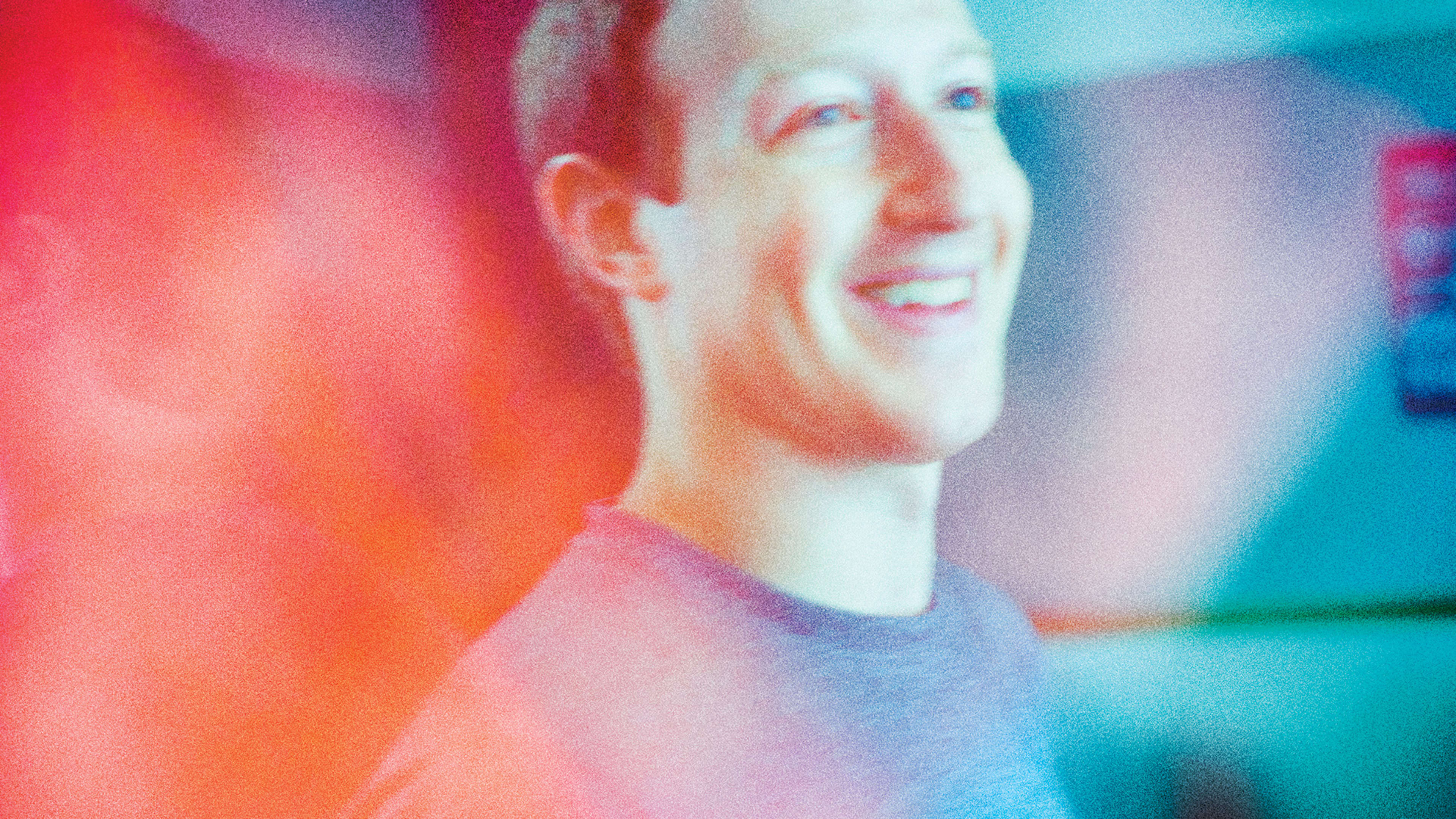When Facebook founder and CEO Mark Zuckerberg released a nearly 5,800-word open letter on February 16—the longest single post he had ever shared on his Facebook timeline—he introduced it with this simple phrase: “I know a lot of us are thinking about how we can make the most positive impact in the world right now.”
At that moment, many other businesses, from Google to Starbucks, were publicly fighting policies proposed by President Donald Trump, most notably in the area of immigration. But Zuckerberg didn’t mention the president or politics. Instead, he posed a broader question: “Are we building the world we all want?” Facebook, he argued, had a responsibility to help people.
It was a mission statement, shared just as discussion of business leadership’s relationship to government leadership was reaching a fever pitch. Facebook itself had been stung by critiques of its role in “fake news” and “filter bubbles.” Implicit in Zuckerberg’s letter was the idea that, despite Facebook’s vacuuming up of ever-larger piles of cash, its real purpose—its reason for existence—wasn’t to make money. It was to make the world a better place.
Such moralizing from a billionaire CEO can come across as disingenuous or naive. Zuckerberg devoted most of his letter to outlining how Facebook could be instrumental in “building a global community,” which of course isn’t too far from what the company’s business imperatives would dictate. Was it all just self-serving rationalization? Is Zuckerberg—and any business leader claiming that values matter more than dollars—simply a hypocrite? This is the tension underlying a rising movement across the business landscape. From automakers such as Ford and Audi to fashion houses like Gucci and Ralph Lauren, from health care firms to consumer-packaged-goods makers, companies are increasingly seeking to align their commercial activities with larger social and cultural values—not just because it makes them look good, but because employees and customers have started to insist on it. Some efforts are clearly reactions to the political environment and the divisiveness surrounding Trump; the impact of boycotts (witness #grabyourwallet) and buycotts can’t be ignored by CEOs or investors.
Yet whatever impetus the current political climate offers, the business community was moving in this direction well before a new president claimed the White House. An organization called the B Team, which includes the CEOs of major businesses such as Unilever and high-profile leaders like Richard Branson and Arianna Huffington, was launched several years ago “to catalyze a better way of doing business” (as its website puts it). Uber’s recent troubles are rooted in issues that long preceded its awkward dance with the Trump administration. Budweiser’s much-discussed Super Bowl TV ad about immigration had been planned for months; Audi’s Super Bowl spot highlighting the gender pay gap was almost two years in the making. Even Zuckerberg’s missive, it turns out, had been in the works for a year.
A practical question looms over this phenomenon: Does business have a higher responsibility to address social values, as Zuckerberg asserts about Facebook, or should the pursuit of profitability—maximizing shareholder value above all else—be the chief purpose of a company? Quickly chasing that question is another one, supported by many acolytes of this new movement: Is it possible that embracing values can actually help profits and share prices in the long run?
Related Video: Facebook, Uber, AirBnB: Are These Companies Givers or Takers?
These issues are roiling executive leadership at enterprises large and small, and in no place more prominently than in Silicon Valley. Which makes techland—and firms like Facebook and Uber—an ideal canvas on which to explore how values and value creation are being balanced and integrated in different ways right now. An experiment is under way in parts of corporate America to redefine the role of business in society. To get a sense of how this is playing out, and what it might portend for our future, we’ve looked at four leading tech companies with varied approaches, as well as a smaller business that’s feeling its way through the challenges. These case studies reveal just how much potential, and how much uncertainty, lies ahead.
The Zuckerberg Philosophy
Five years ago, before Facebook’s IPO, Mark Zuckerberg posted what he called a “founder’s letter” that spelled out the company’s philosophy for prospective investors. “We don’t wake up in the morning with the primary goal of making money,” Zuckerberg wrote. Instead, Facebook “was built to accomplish a social mission—to make the world more open and connected.” Among five specific values that the letter noted (including things like “Move Fast” and “Be Bold”) was this declaration: “We expect everyone at Facebook to focus every day on how to build real value for the world.”
I recently sat down with Zuckerberg to discuss this letter, and his latest one, in order to learn how his thinking might have changed over time. Facebook’s offices have grown to become a sprawling empire in Menlo Park, California, with bulldozers busily constructing new expansions. Building 20, where Zuckerberg works along with hundreds of the company’s 17,000-plus employees, features what may be the largest single-room office space in the world, a meandering wall-free topography stretching nearly a quarter mile that includes cafés, open-air meeting spaces, and an eclectic mix of colorful sculptures. Zuckerberg’s desk is in Area 3, near the midpoint of the building, one among many workstations. He greets me wearing his usual jeans and gray short-sleeve T-shirt, and we walk over to a glass-enclosed conference room just behind his desk. He may not have a traditional office, but this is where he holds product-review meetings and entertains visitors. We settle in on the couch and begin talking.
“I didn’t start Facebook as a business,” Zuckerberg says. “I built it because I wanted this thing to exist in my community. Over some number of years I came to the realization that the only way to build it out to what I wanted was if it had a good economic engine behind it.” In this way, he notes, “Facebook has always been a mission-driven company.”
The open letter Zuckerberg posted in February “wasn’t exactly a follow-up” to the founder’s letter, he says. “The founder’s letter was written for shareholders buying into the IPO to understand how the company operated.” The new letter “had a different goal, less about how we work and more about what we’re going to do.” What’s changed dramatically since 2012, according to Zuckerberg, is the rising skepticism about global connectivity. “When we were getting started in 2004, the idea of connecting the world was not really a controversial idea. . . . People thought that this was good,” he says. “But in the last few years, that has shifted, right? And it’s not just the U.S. It’s also across Europe and Asia. Folks who have been left behind by globalization are making their voices louder.” Zuckerberg explains, “I feel like someone needs to be making the case for why connecting people is good, and we are one of the organizations that I think should be doing that.”
As he talks about these things, Zuckerberg looks directly at me, rarely blinking. His focus is acute. I mention several of the ways that some corporations express their values—Starbucks committing to hiring refugees, for instance, or others that engage in charitable giving. But Zuckerberg isn’t steering Facebook toward external social action or philanthropy. “I think the core operation of what you do should be aimed at making the change that you want,” he replies. “A lot of companies do nice things with small parts of their resources. I would hope that our core mission is the main thing we want to accomplish: making the world more open and connected. Almost all of our resources go toward that.
“When I want to do stuff like invest in education and science and immigration reform and criminal justice reform,” he goes on, “I do that through a different organization, through the Chan Zuckerberg Initiative.” (He and his wife, Priscilla Chan, created CZI to make good on their pledge to give away 99% of their Facebook shares during their lifetime.) “It’s not that people [at Facebook] don’t believe in those kinds of things. I just think building social infrastructure for a global community [is Facebook’s] mission.” Within that mission, Facebook has created tools that enable charitable fundraising as well as societal support (like its Safety Check feature, which has helped people find each other during crises).
There is often skepticism when companies claim to be values- or mission-based, because near-term financial results seem to take precedence over other purported corporate values. When I ask Zuckerberg about this, he doesn’t acknowledge any disconnect between satisfying a higher mission and meeting financial goals. “People want business leaders—and all leaders—to be authentic and stand for things,” he says.
Then Zuckerberg brings up the fake-news controversy that hit Facebook in the past year—the contention that the company wasn’t vigilant in removing inaccurate, politically motivated posts by fictional news outlets because they generated ad revenue. His voice rises in intensity. “One of the most frustrating things is when people assume that we don’t do something because it will cost us money. Take, for example, some of the debates going on now around the news industry and misinformation. I mean, there’s definitely a strain of criticism [asserting] that Facebook [lets] people share misinformation because it will make [us] more money. And that really is just not true at all.”
The underlying value that drives Facebook’s content decisions, Zuckerberg says, is freedom of speech. “I believe more strongly than ever that giving the most voice to the most people will be this positive force in society,” he says. “Often when you make decisions that aren’t exactly what people want, they think you’re doing it for some underhanded business reason. But a lot of these things are more values-backed than people may realize.”
Zuckerberg does recognize that there may sometimes be unintended consequences to Facebook’s actions. “It’s a work in progress,” he admits. “At each point you uncover new issues that you need to solve to get to the next level. . . . It’s not like they are problems that exist because there’s some kind of underlying, nefarious motivation that led to them. I mean, certainly giving people a voice leads to more diversity of opinions, which if you don’t manage can lead to more fragmentation over time, but I think this is kind of the right order of operations. You know, you give people a voice and then you figure out what the implications of that are, and then you work on those things.”
When I ask whether Facebook has design flaws that might undercut its values and mission, he agrees in principle, but offers a clarification. “I think it’s fair to call them flaws, because every system is imperfect. But [thinking of it as] a work in progress is probably a more realistic framing. I mean, it’s not wrong to say that it has flaws, but I wonder if that’s an overly negative framing—not just of Facebook, but of any business or system. You got here by doing certain things, and the world is changing around you, and you need to adapt to keep going forward.”
Zuckerberg offers an example—not something momentous like Trump’s election (he studiously avoids political topics) but rather a more mundane area: clickbait, which at one point generated lots of user complaints. “Our algorithms at that time were not specifically trained to be able to detect what clickbait was,” he says. “The key was to make [tools] so the community could tell us what was clickbait, and we could factor that into the product. Now, it’s not gone 100%, but it’s a much smaller problem. And when I think about things today, whether it’s information diversity or misinformation or building common ground, these are the next things that need to get worked on.”
I then pose a moral question: Do successful businesses like Facebook, which have disproportionately benefited from the advent of new technology, have any special responsibility to help people being left behind by technology’s march? Zuckerberg looks away and pauses for several seconds, gathering his thoughts. “I think yes,” he finally says, “but there’s a lot in what you just said.” He continues, “A lot of the current discussion and antiglobalization movement is because, for many years and decades, people only talked about the good of connecting the world and didn’t acknowledge that some people would get left behind. I think it is this massively positive thing overall, but it may have been oversold. We have a responsibility to make sure it works for everyone.
“The thing that’s tricky,” he says, “is that I believe a lot of the issues we’re currently seeing around the world are not only economic questions. They’re social questions of meaning and purpose and dignity and being a part of something bigger than yourself. Certainly the economic part is very big. But I also think that regardless of how well you’re doing economically, you’re going to have issues in your life and you’re going to need a social support structure around you.” That’s why he is so committed to Facebook’s quest to build community.
Zuckerberg’s approach is a consistent and disciplined one: If everything the company does is predicated on the goal of connecting people, and if that goal is a higher-order priority than moneymaking or reacting to near-term political shifts or anything else, then long-term progress along that vector is what matters most. But it also makes him and his enterprise vulnerable: Any shortcomings in any part of the business reflect back on the whole and leave Facebook open to criticism. Zuckerberg clearly has a conscience (he’s not happy with how fake-news outlets manipulated his service), and he is devoted to constant improvement. Yet that won’t stop charges of hypocrisy. His challenge is to keep using complaints as motivation to make Facebook better, rather than getting defensive or pulling back.
As I walked out of Building 20, I found myself returning to a few sentences Zuckerberg had shared early on in our talk. He asserted that in the future, all businesses will increasingly need to tap into values and mission—that both consumers and employees will demand it. “Especially with folks who are millennials, that is going to be the default,” he told me. “When I started Facebook, there were a lot of questions around, Is this a reasonable way to build a company? And then when more millennials started graduating from college and we went to recruit them, it became very clear that they wanted to work somewhere that wasn’t just about building a business, but that was about doing something bigger in the world.”
His strategy for linking values and commerce through Facebook’s core activity is one approach to meeting that goal. There are more intricate ones too, as I soon discovered.
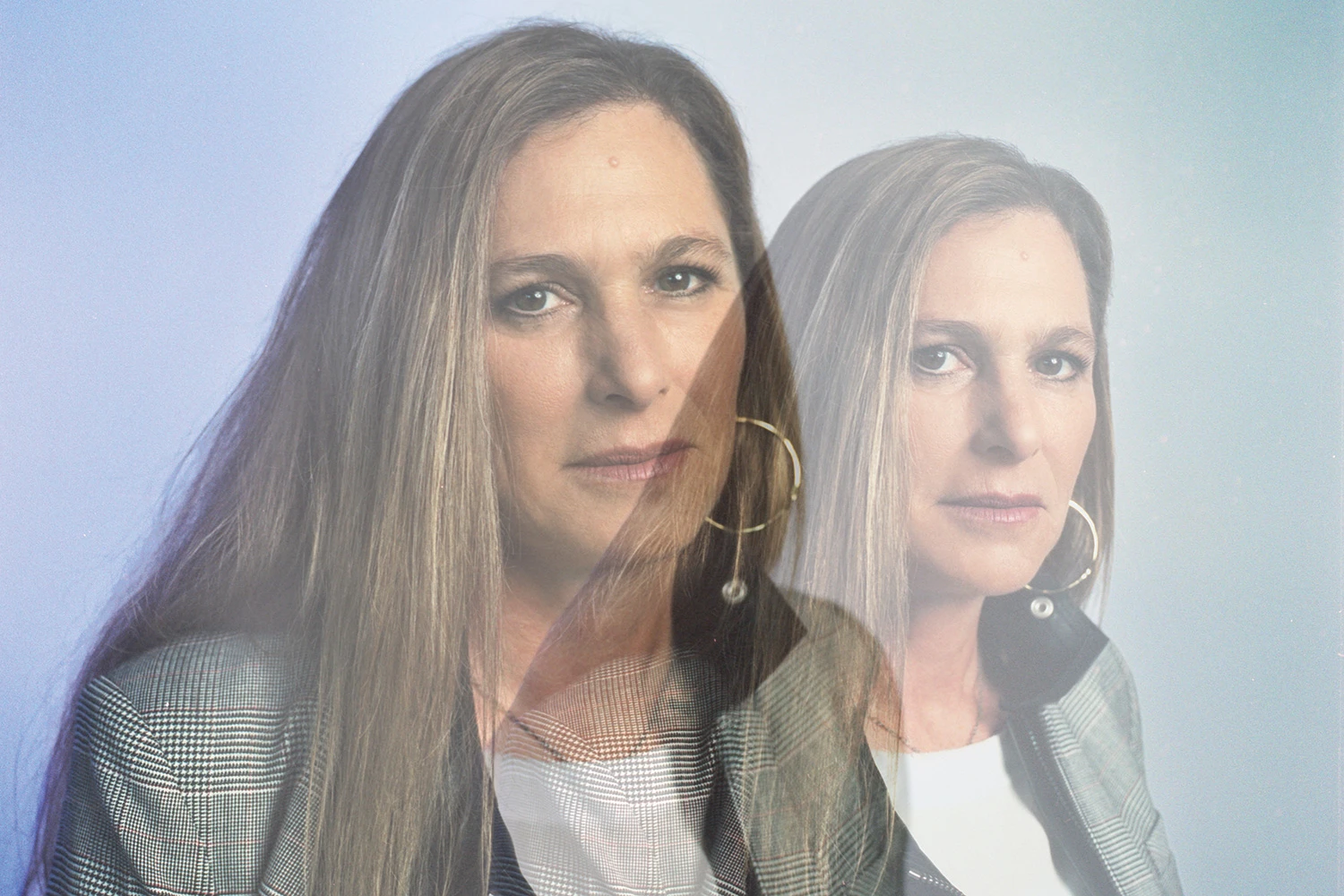
The Cult Of The Ohana
“I love to work at the intersection of capitalism, technology, and social justice.” Suzanne DiBianca, who was named “most talkative” in her high school graduating class, is animatedly telling me a story about how altruism and financial success go hand in hand at Salesforce, where she has worked for the past 17 years and serves as chief philanthropy officer. We’re chatting in an office on the 25th floor of Salesforce East, one of the company’s multiple HQ buildings in downtown San Francisco. DiBianca’s desk is in an interior space—as are all private offices in the building—but as you look past the adjacent workstations and out the windows, you can see the looming, still-under-construction Salesforce Tower, which is now the tallest structure in the city (it will open in 2018). The 25,000-person company is already San Francisco’s largest tech employer, with much future growth obviously in the works.
DiBianca, who helped launch the nonprofit foundation now known as Salesforce.org, begins by describing how one of the hundreds of volunteering activities that it supports also benefits the larger Salesforce community. “Every week kids walk down [to our office] from Chinatown at lunchtime, and people here will listen to them read aloud,” DiBianca says. “If you spend your lunch hour working with the children, you’ll come back with gratitude, with perspective on the world, inspired, and turned on. If you spend that hour out at lunch with a colleague, venting about what’s not working the way you want, you’re going to come back deflated.”
Like Facebook, Salesforce has long considered itself a vehicle for positive change in the world. But rather than point primarily to the core profit-making operation of the company, as Zuckerberg does for Facebook, Salesforce expresses its larger purpose first through philanthropy and the volunteering activities of its workforce. Yet this altruism, Salesforce execs contend, is indelibly linked to the business’s finances. As DiBianca puts it, “there is no distinction” between the company’s drive for growth and its social impact. “When you have people living their values every day, you’re going to create a heightened sense of teamwork, and a great company.”
Salesforce has, from its inception, been an unusual business. CEO Marc Benioff launched the company in 1999 around novel ideas that are now seen as gospel: that enterprise software could be delivered over the internet and as a subscription service. He also wanted to make philanthropy an integral part of the culture and, working with DiBianca, developed what they call a 1-1-1 model, which refers to giving away 1% of Salesforce’s products, of its employees’ time, and of its resources. (An initial 1% equity grant anchors the foundation’s funding.) Salesforce.org has bestowed more than $160 million in grants, organized more than 2 million employee volunteer hours, and shared low- and no-cost technology with more than 31,000 nonprofits and educational institutions. New hires at Salesforce participate in community activities such as sorting goods for a food bank as part of their orientation, and 80% of employees volunteer in their communities. (They get seven days per year of “volunteer time off” to take part in activities such as coaching Little League, building schools, and assisting at health clinics.) The company’s annual Dreamforce conference, which gathers more than 170,000 customers and partners, also integrates volunteer efforts.

This is all part of what Benioff calls the company’s “Ohana,” a concept based on the Hawaiian word for “family.” On a tour of the company’s HQ, Elizabeth Pinkham, who oversees Salesforce’s buildings and offices around the world, explains how the decor and layout are being designed to evoke the Ohana, including quiet meditation “wellness” corners where cell phones and laptops are discouraged. Thirty Buddhist monks were invited to join last year’s Dreamforce gathering and, says Pinkham, ended up being star attractions. “The Salesforce Ohana is a deep-seated support system we nurture inside our company,” an in-house blog explains. It can all sound a bit out there for a $60 billion seller of enterprise software. But fostering values has always been the point for Benioff. “I know that the work I’m doing is making the world better,” says the CEO. “Salesforce helps hospitals and schools and all kinds of nonprofits. Salesforce gives guidance to our employees to get out there and volunteer. And I think that’s why we have high levels of satisfaction in our employees and why we can attract people. We are creating an environment that gives them satisfaction in their work, not just financial gains.”
Salesforce.org may be “the heart and soul of the company,” in the words of Ebony Frelix—who runs its philanthropy programs, grants, and volunteering—but the Ohana reaches into Salesforce’s operational culture, too. Cindy Robbins, who oversees human resources, recalls how after she was promoted to her current post, she was surprised to discover that the company had never gathered data on how much female employees were paid compared to men in similar jobs. She went to Benioff. “I explained to him that we couldn’t lift up the hood on this and, if we found something, simply put it down again,” she says. “This could cost us real money to address. He said to go for it.”

The pay-gap study did indeed discover discrepancies (for some men as well as women, according to the company). Robbins is proud of how they responded: Salesforce instituted salary adjustments for 6% of its workforce, at an annualized cost of $3 million, she says. This January, Benioff said the company would implement another round of salary adjustments, with a similar cost, to align employees who had joined as part of acquisitions. “Some things we’ll do well and some things we’ll learn from,” Robbins says. “You have to be very intentional about working at it.”

Tony Prophet, who joined Salesforce as its first-ever chief equality officer late last year, points to a different example of the company putting its dollars at risk in support of its values. In 2015, Indiana’s then-governor, Mike Pence, signed the so-called Religious Freedom Restoration Act, which would likely have opened the door to discrimination against LGBTQ people. Employees at Salesforce’s Indianapolis office objected to the law and raised the situation with Benioff. The CEO then publicly threatened to greatly reduce its investment in Indiana (the company had maintained a significant presence in the state since buying local software developer ExactTarget in 2013). He tweeted that he was canceling programs that would require employees and customers to travel to Indiana, and promised relocation packages to workers who might want transfers. The law was eventually amended to protect LGBTQ rights, and Indianapolis remains the second-largest Salesforce office.
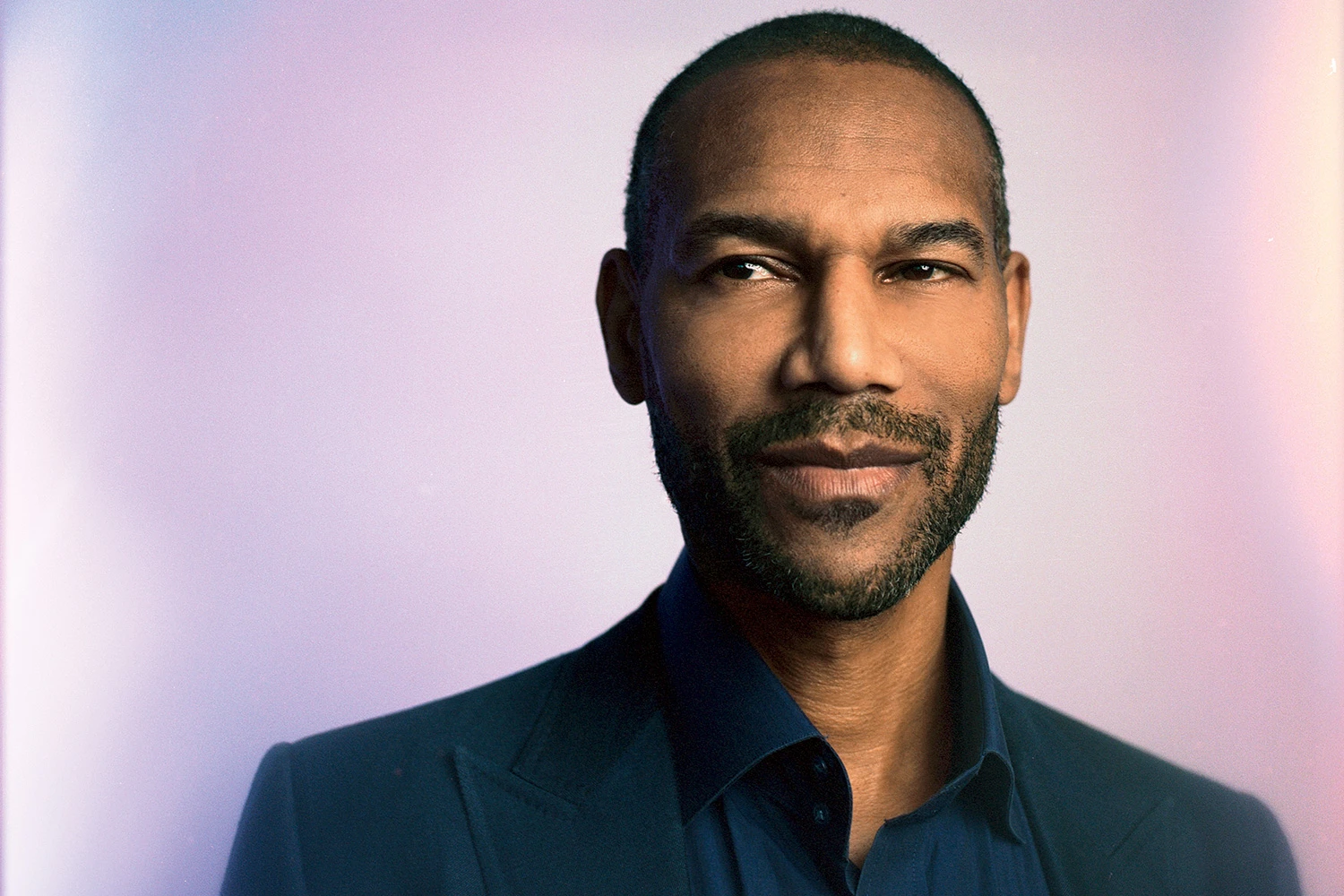
Salesforce has been criticized for not always following through on its values. For example, in the past some African-American employees have suggested that their concerns weren’t taken seriously enough by the company. A recent study in the academic journal Sage, focusing on corporate responsibility, reports that “the threat of hypocrisy is amplified for firms with stronger reputations” and that some companies choose to downplay their achievements to avoid tighter scrutiny of areas where they may be less proficient. The Salesforce leadership team seems undeterred by those risks. “We’re an institution in society, and we have a responsibility to do the right thing,” Prophet says. Plus, he argues, it helps the bottom line: “Over the long arc of time, when you do the right thing for the planet, it will be good for you as a business. People will want to work for that company; you’ll have a magnetic brand that resonates. It creates loyalty and affinity.”
While not every company will warm to Benioff’s program of Ohana, more and more are embracing his model of philanthropic engagement. “Trust in business is higher than trust in any other institution,” says DiBianca. How companies deploy that trust, she says, is critical. “I’m super optimistic about next-generation companies.” She’s referring to the growing number of businesses that have signed on to something called Pledge 1%, a commitment to mirror the 1-1-1 system that Salesforce pioneered. In two and a half years, the number of businesses committed has climbed to 1,600, from education upstart General Assembly to Australian software juggernaut Atlassian. “There’s all this incredible energy in [most companies] and you can unleash it for good,” says Benioff. “If you’re not unleashing it, you’re missing something. The ability to do it is relatively straightforward. All you have to do is open the door.”
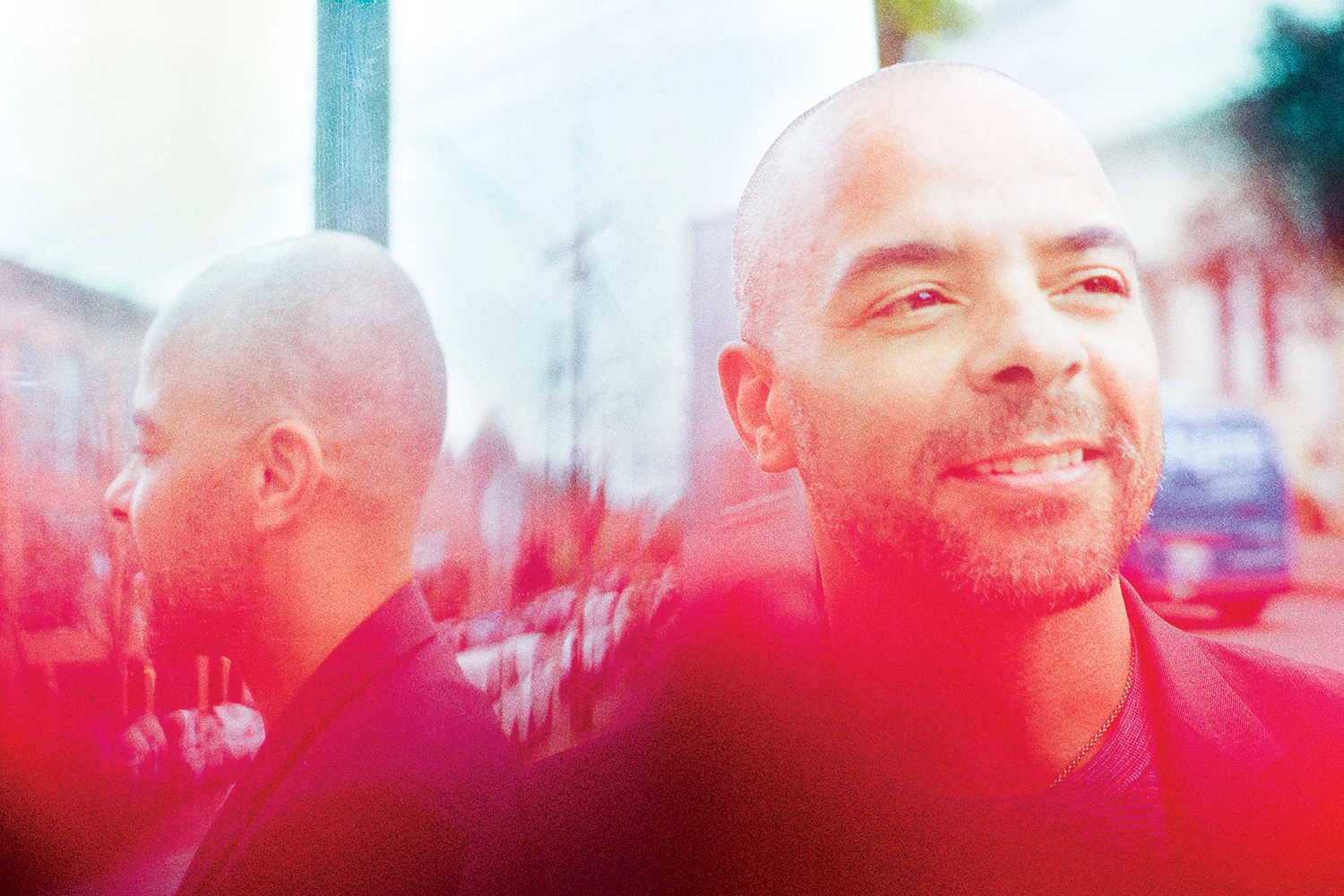
The Airbnb Advantage
Are you a giver or a taker? That’s the question at the heart of Wharton professor Adam Grant’s best-selling book, Give and Take. Grant shows through empirical studies and anecdotes that “givers” (helping, cooperative, sharing individuals) are the most valuable employees within organizations, despite societal norms and corporate-reward systems that habitually favor individual-achievement-focused “takers” (who tend to rise quickly but ultimately fall).
When Grant is out talking about his book, he is invariably asked whether entire companies can be viewed as givers or takers. “Sure,” he says. “You can see what the values and norms [of a company] are internally . . . and the way it interacts in the world.” All this is “much more salient” today, he says, because “company behavior and claims are way more visible than before.” Plus, he adds, with “the drop in trust of government,” the role of the corporation in driving culture “is much bigger than it used to be.”
Givers, explains Grant, earn what psychologist Edwin Hollander called “idiosyncrasy credits”: By being helpful to others, they accrue trust that allows them to sometimes break from expected behavior. A company with “giver” attributes—”What can I do for you?” versus “What can you do for me?”—may get the benefit of the doubt in difficult moments. “Other companies are constantly skating on thin ice,” observes Grant (who works with businesses such as Facebook to help assess and improve their culture). “When the dots connect, people say, ‘Oh, that’s why I hate my job,’ or, ‘That’s why I love my company.’ ”
This paradigm offers a compelling lens for examining two tech-innovation siblings: Uber and Airbnb. Both are anchors of the sharing economy, both have had to challenge local laws to elbow their way in, and both have reached multibillion-dollar valuations while remaining privately owned. Their headquarters are based just a mile from each other in San Francisco’s South of Market district, and it might be natural to look at them as twins. But only one of them is perceived as a giver.
Uber has had a painful 2017. CEO Travis Kalanick has been embroiled in turmoil, first over his decision to join and then drop out of President Trump’s business advisory council, then due to allegations of gender bias and harassment at his company, all of which has inspired a wave of #DeleteUber protests. While there are many reasons for this crescendo of snafus, it is also true that Uber’s store of “credits” was low before these events unfolded. The ruthlessness that allowed Uber to build dominant market share and disrupt transportation as we know it also imbued its brand with an aura of by-any-means-necessary selfishness. The unflattering video that surfaced this year of Kalanick berating an Uber driver only reinforced those prevailing sentiments.
Airbnb has had its moments of trouble, too, in its confrontations with local regulators and around allegations of racial discrimination by its community of hosts. Yet Airbnb CEO Brian Chesky has largely avoided any cloud of resentment (helped, certainly, by Airbnb’s eventual efforts to address the discrimination challenges). What separates these two companies can be illuminated by considering two recent occurrences: When Uber tried to support immigration demonstrations in New York–area airports by holding its prices down, it was swiftly denounced for undercutting striking taxis—it got no benefit of the doubt for what it claimed were altruistic motivations. Meanwhile, when Airbnb aired its “Accept” ad during the Super Bowl, it could have been pilloried for exploiting pro-immigration sentiment for its own business purposes. That critique never got traction.
I recently visited Airbnb’s headquarters, a beautifully rebuilt warehouse with a bright, open atrium and playfully designed studiolike work spaces. I met with Jonathan Mildenhall, Airbnb’s chief marketing officer, who was animated about a new internal study he’d undertaken with partners at ad agency TBWA\Chiat\Day titled “The Business Case for Creating an Iconic Brand.” The premise is that tech companies (with the notable exception of Apple) undervalue and underinvest in brand building, limiting their growth and impact. Mildenhall hoped to use the study to convince Airbnb’s internal stakeholders—CEO Chesky, other executives, the board of directors—that an ongoing commitment to enhancing the brand was a worthwhile investment.
Mildenhall is a charismatic, stylish Brit who came to Airbnb from Coca-Cola, where, among other things, he oversaw the diversity-celebrating “It’s Beautiful” Coke ad that originally aired in 2014 and also ran during this year’s Super Bowl. Mildenhall’s aspirations for Airbnb are ambitious: If Coke was the iconic brand of the 1980s, Nike defined the 1990s, and Apple ruled the 2000s, then his goal is to make Airbnb the brand of this decade. “I’ve got three years,” he says.
The study, which has been packaged into a colorful, graphics-heavy 73-page booklet, enumerates how brands can enhance asset valuations, push customer growth, provide pricing support, attract talent and partners, inspire employees, and “drive loyalty beyond reason,” as the booklet puts it. It is a rational, pragmatic pitch for building emotional appeal.
While Mildenhall, as a marketer, discusses all of this in terms of brand, it could just as logically be framed around values. (A central component in the study is “standing for higher-order values.”) Airbnb’s values revolve around “belonging”—its core product requires trust and openness to succeed, whether for hosts offering up their homes or for guests willing to stay with strangers. While Uber might, in the long run, replace its drivers with self-driving cars, Airbnb is inextricably reliant on people.
Airbnb’s “Accept” Super Bowl ad, Mildenhall says, was not a strategically developed campaign—it came organically out of the company’s values. Members of the marketing team had originally put it together for Airbnb’s own website, using pictures of employees and their family members and spending around $85,000 on production. When they showed it to Mildenhall, the Super Bowl was six days away. Could this work as a commercial during the game? He asked them to cut the video down from 60 to 30 seconds, which they did in 45 minutes. When Mildenhall presented Chesky with the idea of deploying it for the world’s biggest media event (Fox still had an open slot), Chesky’s only hesitation was whether an ad without additional initiatives behind it would come across as mere hype. So the day it aired, Airbnb announced a goal to provide short-term housing to 100,000 people in need over five years. It also committed to a $4 million donation to the International Rescue Committee, which helps refugees around the globe.
Uber’s challenge, aside from its CEO’s need to rehabilitate his own reputation, is that it hasn’t convincingly linked its core business operation to a larger social purpose. While ride-sharing can be seen as a conduit to having fewer vehicles on the road, cutting down on traffic and carbon emissions, it is Uber’s competitor Lyft that has owned that narrative—plus a more empathetic brand ethos to go with it. (Lyft scored points by making a big donation to the ACLU right after Uber’s travel ban–protest fiasco.) Behaving less ruthlessly may have hampered Lyft’s business growth, but the company has earned generosity credits that seem to be increasingly difficult for Uber to accrue.
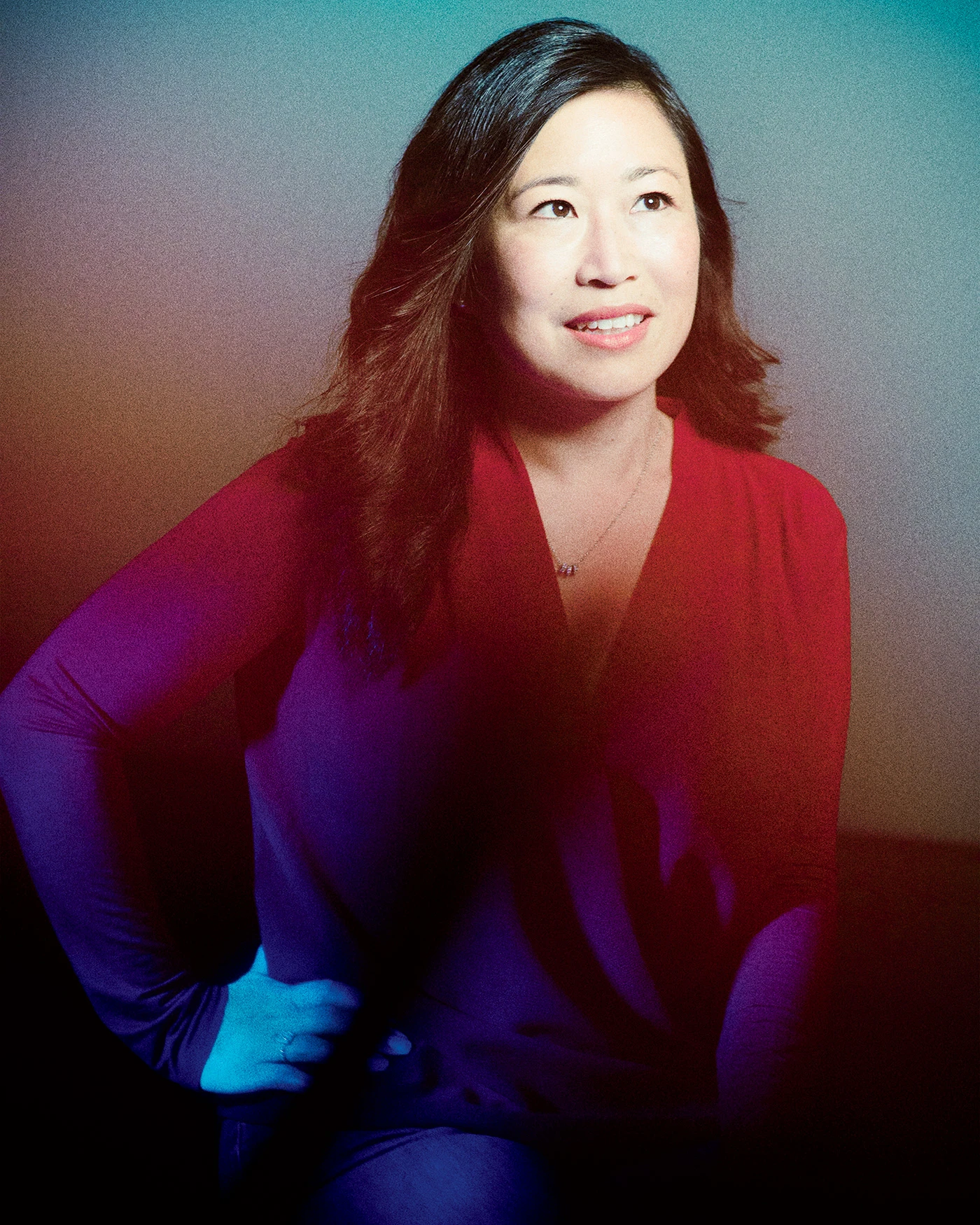
Where Value Begins
Anne Raimondi’s office is not particularly impressive. Zendesk’s head of marketing works in a small, windowless square that’s adjacent to a few rows of open-plan workstations. It’s certainly a comfortable place: Her company, which is best known for customer-service software, offers the type of decor typical of a certain kind of San Francisco–area workplace, with blond wood, communal work areas, and a loftlike vibe. Yet compared to the jaw-dropping environs of places like Facebook and Airbnb, it seems rather modest.
But within this relatively unspectacular locale, Raimondi—who is not a boldface name in the business community—illuminates a key aspect of running values-driven businesses better than any other executive I’ve spoken with. She talks about “stress testing” values—the idea that moments of conflict are when we learn what is really most important to us.
Raimondi got an early lesson in the integration of values and enterprise when she worked at eBay for founder Pierre Omidyar in the early 2000s. “He was super thoughtful on how an open, honest environment brings out the best in people,” she says. “He believes that people are basically good and that everyone has something to contribute.” And that fit smoothly with eBay’s business model of “a marketplace where people could trust—buying items from someone you don’t know,” she adds.
Since then, Raimondi has occasionally acted as an informal adviser to startups, helping them to construct their own values statements. “Culture is a living, breathing thing that evolves,” she says. “Culture becomes a reflection of values at each stage of an enterprise. They manifest themselves differently.”
The most effective values, she says, are useful in building strategy. “So many companies think of this as a check-the-box: ‘Okay, we need a values statement,’ ” she says. “They end up with things that are generic and watered down.” (Adam Grant echoes this point: “The research shows that most corporate values are the same—excellence, integrity, teamwork, and so on.”)
Among the values statements at Zendesk is “Keep It Beautifully Simple.” “That worked when we had one product, but as we move upmarket and take on more complex problems, it doesn’t capture enough,” Raimondi says. “So we’re discussing how to evolve.” Raimondi doesn’t see this as a weakness; instead, it’s a reality. “What are the different perspectives at different stages, and how do you use your values to make difficult decisions?”
What defines a business is not the words that a CEO or human resources department trot out, but rather the way the organization actually behaves. “If no executives are in the room,” Raimondi says, “how does everyone hold each other accountable? How do we challenge and make each other better?” Or as Grant says, company values “are lived, not just talked.”
Today, we are at a moment of stress-testing for business, exemplified by both Trump administration policies and reactions to them, but extending to more broad proportions. As trust in government and other institutions has suffered, businesses are expected to play an ever-larger role in leading culture, in the U.S. and around the globe. How business leaders tap that power—and express their values—will play a critical role in the evolution of our world.
Grant says that what ultimately differentiates givers from takers is our inner motivations, our intentions. Kalanick’s intention at Uber is murky; wouldn’t his business model be more efficient if every driver were replaced by an autonomous vehicle? Chesky’s intention at Airbnb is clearer: He really does want people to accept each other; that will, after all, push his business forward. The intentions at Salesforce are obvious: It believes philanthropy will help its Ohana both spiritually and financially.
As for Zuckerberg, there’s no question that his intention to connect the world is genuine. And if that makes him, his employees, and his shareholders a ton of money, what’s wrong with that? “In running a company like this, you’re never going to get everything perfect,” he says, “but every day you can come in and try to make people’s lives better. And if you repeat that process for a long period of time, the value compounds, and you can make a very big impact.”
Business has long been ruled by the short-term demands of Wall Street investors: quarterly earnings results, a rising share price. But when you think about it, that’s really a taker’s attitude. And maybe that’s starting to change.
Read More: Find Your Values
Recognize your brand’s excellence by applying to this year’s Brands That Matter Awards before the early-rate deadline, May 3.
